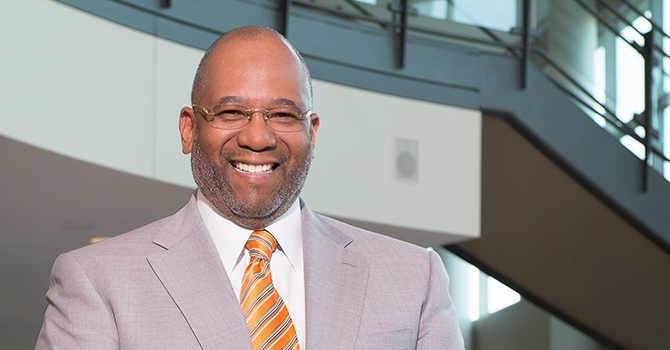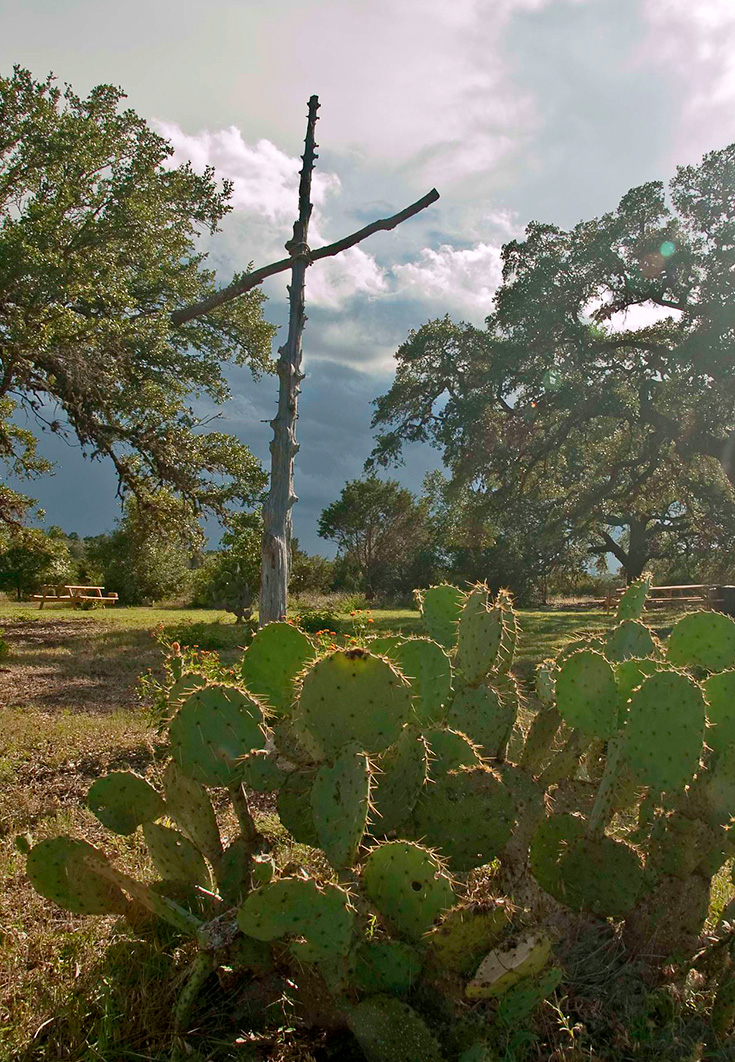In 1987, Ralph West became inspired by a message from God: Go plant a church.
So he did.
The Church Without Walls, formally known as Brookhollow Baptist Church, was launched from a meeting at his house in November 1987. From there, the journey began.
The Houston-based Church Without Walls has now grown into three church campuses with more than 20,000 members attending both online and in person in 150,000 square feet of space. For West, the goal was always to have a dynamic and genuine worship service that left congregants feeling fulfilled.
“We are never trying to restrict the movement of the Holy Spirit but instead give the Spirit room to work,” he said. “We want to work within those parameters that the Lord gives us, and we want the music to be great and the preaching to be impactful. We want it to be exciting.”
He spoke about his church and his preaching experience with Faith & Leadership’s Katie Rosso while at Duke Divinity’s Convocation & Pastors’ School. The following is an edited transcript.
Faith & Leadership: First of all, tell me about your church, The Church Without Walls -- why it’s called that and how you developed it into what it is today.
Ralph West: The Church Without Walls is a 32-year-old congregation. We began in 1987 with approximately 32 people, and when we first started, we worshipped at the Brookhollow Marriott Hotel. The first property we purchased was the old Houston Business Journal in northwest Houston, and so we had to retrofit that building into a church. The official name of our church is Brookhollow Baptist Church, but it’s always, from its inception, been known as The Church Without Walls.
We took the name out of a sermon series from the book of Acts. I made this riff that everything that Jesus did of significance was done outside. He was born outside. He taught outside. He fed the masses outside. He was transfigured outside. He even died outside. As soon as people got ahold of him, they wanted to put him inside -- but he would always go outside anyway. So we said that the walls couldn’t contain him or his ministry.
F&L: I read that almost 9,000 people attend every Sunday in person, and more online. What do you think is so compelling about the mission?
RW: When we started, the timing was right. The location was new; we had no African American churches in this area. And of course, the blessings of God. That’s the whole aspect where you just can’t calculate or find a specific reason. We also had a strong emphasis on men, trying to grow men to be men, and what it really means to be a Christian man. We also had a huge emphasis on children and youth. That’s in terms of ministry, but worship became primary for us, too.
Our worship was timely. We’re big on time -- 75 minutes. I wanted the worship to be timely but dynamic and well organized, scripted even. We plan out every Sunday -- this at 8, that at 8:03, this at 8:05. We try to stay within a schedule, because I believe order has a lot to do with creation. I don’t think the Lord just at random does things.
We wanted it to be scheduled and content-driven but exciting. When people walked in the door, they knew that from start to finish they would get impactful worship for those 75 minutes. We wanted them to walk out and say, “Wow, that really was worship.”
F&L: How far in advance do you script the sermons? What does that process look like?
RW: I always try to stay 13 weeks ahead. I’m in a series right now called “Our Journey,” and I’ve taken these journey motifs throughout the Scripture to represent the different places where God takes us on our journey. When we started that, we started with the text and then musicians. And we work with the minister of music to select the hymns and the choral arrangements and the responses.
F&L: You talk about the importance of timeliness. How do you decide when you’re going to change a sermon because of what’s happening in the news, for example?
RW: It really depends on what day the news breaks. If the news breaks Saturday night or even Sunday morning, you have to address that. You want people to know that you are responsibly addressing it, whether sermonically or making space to address it another time. But you have to be careful. Any ethical issue is going to divide the room -- the question is in how you present it.
I was reading a great article this morning about Ellen DeGeneres sitting with George Bush at a football game Sunday. She gets a million tweets and mail -- “Why are you sitting with George Bush?” She answers, “George W. is my friend. He’s been my friend. I have a lot of friends that don’t agree with me, but they’re still my friends.” I wanted to bring that story up, because lest we’ve forgotten, that is what the world is made of -- disagreeing opinions. You can disagree and still be friends. I said, “This woman is more Christian than most of the Christians I know.” I’m tucking that one away.
She really becomes for me the image of Ephesians 2, Jesus tearing down the walls of separation. “Because he’s my friend” is a response that shows what the world is made of. I said, “That’s it.” Every week my room is divided, so when I stand up and make a decision to preach on something, I have to say it like Ellen did -- it has to be in love.
F&L: How did you develop your intentional style of preaching? Your bio online says you started preaching at 16.
RW: Yes, I was 16. I remember one thing I did was I started preaching under very polished preachers that really knew how to preach. One way I tell students to learn how to preach is to always listen to good preachers. If you listen to good preachers, there is a possibility that good preaching will come out of you.
I also had really good professors of homiletics from college and seminary, so they influenced me. And then, really, I’ve always loved preaching. I love reading about preaching. I love talking about preaching. I love hearing how people put preaching together. That’s my style.
The challenge every preacher has is trying to find his or her voice in preaching. One way I think preachers could be helped with that is once they find someone whose preaching they resonate with, examine the way they communicate. For me, I love literature in preaching. So I have tried to incorporate that into my own style.
F&L: How did you know you were called to preaching?
RW: I really sensed it. I sensed it as a teenager -- it was sudden. I went to church and looked up and said, “I think the Lord is calling me to preach.” The wisdom of my pastor helped me work through what that was. I called him in the last week of July 1975, and he said, “Well, on Sunday, you’ll announce your calling.” That was the first Sunday of August 1975. And after I announced it, he stood up and said, “Next Sunday, Brother West will be here preaching his first sermon.” I’m like, “What?” No nothing -- no, “Here’s a book; read this; let me teach you.” It was all the ways you don’t recommend today. I was like, “I don’t have one word to preach.”
F&L: How did you do it?
RW: He helped me -- “Write this down; this is how you do this; this is how you do that.” In those days, it was all about the theme: the price that was paid for our souls. First Corinthians 6:19-20, “You’ve been bought with a price; therefore glorify God in your body” (6:20 NRSV). You’re God’s -- you’ve been bought with a price. I can see that; I can see it now.












